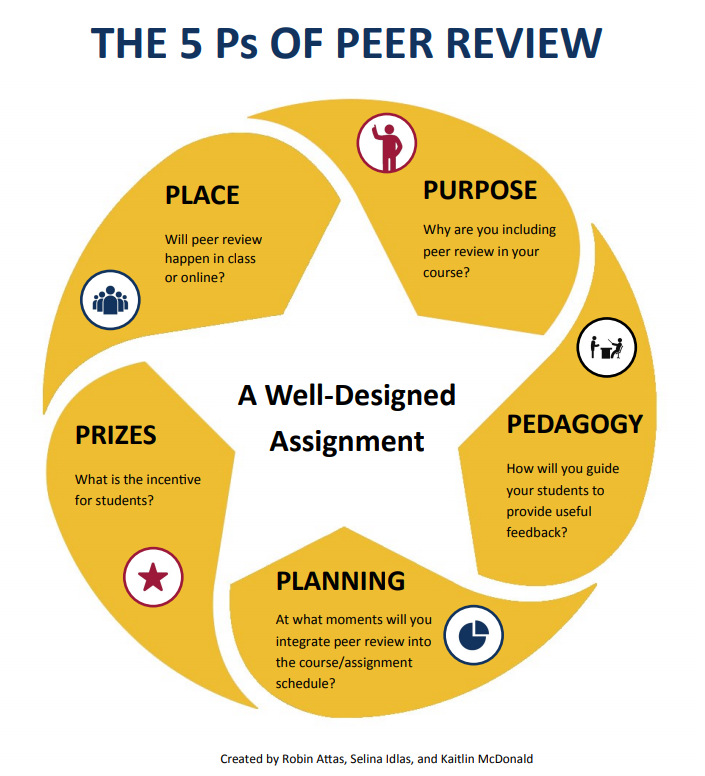Peer review or assessment, can improve overall learning by helping students become better readers, editors, writers, and collaborators. A well-designed peer review program also develops students’ evaluation and assessment skills.
 The Five Ps of Peer Review:
The Five Ps of Peer Review:
The Five Ps of Peer Review (PDF, 350KB)
Purpose
Why are you including peer review in your course?
Pedagogy
How will you guide your students to provide useful feedback?
Planning
At what moments will you integrate peer review into the course/assignment schedule?
Prizes
What is the incentive for students?
Place
Will peer review happen in class or online?
Best Practices
- Be clear about the stages to the peer-based activity, such as deadlines, and student responsibilities
- Clarify how students will be monitored and evaluated throughout the peer-review process
- Explain the pedagogical value of the exercise
- Grant students time to familiarize themselves with the evaluation criteria before they provide their feedback
- Introduce students to the platform being used for peer review (in-class, online, etc.)
Resources
Website
Ed Tech Toolkit, Centre for Teaching and Learning, Queen's University
Teaching Students to Evaluate Each Other, Center for Teaching Innovation, Cornell University
Using Student Peer Review in Any Class, Centre for Teaching Excellence, University of Waterloo
Peer Review, Pedagogy in Action, the SERC portal for Educators, Carleton University
Integrating Peer Review, Debby Ellis Writing Center, Southwestern University
